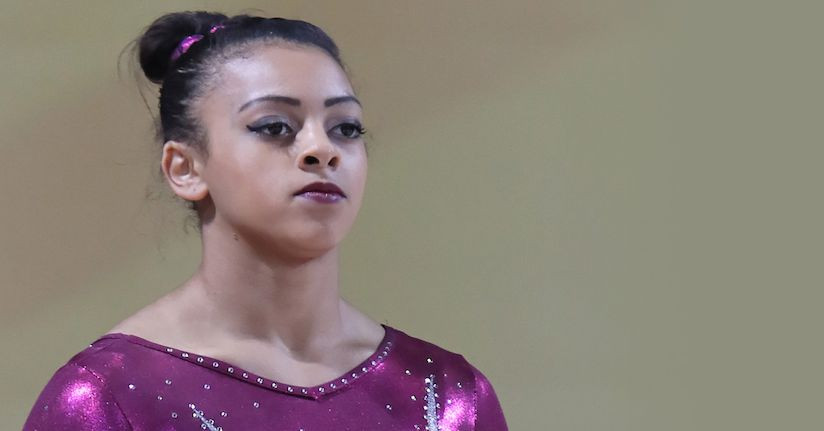Concussions, Mild Traumatic Brain Injury (TBI) at the Olympics: The Case of Ellie Downie
At what point does “playing through the pain” become too much of a short- and long-term risk for an athlete and outweigh the accomplishment of competition and victory? That was a question raised this week at the Olympics in Rio 2016 when Ellie Downie, gymnast for Great Britain, landed awkwardly on her head as part of her floor exercise during a qualification round. Downie initially continued her routine but had to be helped off shortly after prior to finishing the performance, citing dizziness and potential injury to her neck. However, moments later, she would return to finish the event and help her team qualify for the finals.
The immediate reaction among many on social media characterized Downie as a strong competitor who showed true athletic courage in continuing on through possible injury:
Ellie Downie is a badass. To fall on your head/neck is dangerous, but to then get back up and finish 2 vaults? Mad respect. #Olympics
— Brooke (@actresssinger7) August 8, 2016
Official U.S. Olympic online channels have used adjectives such as lionhearted and inspirational as well in describing her efforts. But some have also questioned whether or not she should have returned to competition:
"Ellie Downie said she did not have a concussion but felt dazed for a bit." Sorry - that's a concussion. https://t.co/9mAEVEwRI9 @USATODAY
— Dave Watson (@wvheadachedoc) August 8, 2016
Should we really cheer when an Olympic gymnast plays through a head injury? https://t.co/JTSEYE54n2 pic.twitter.com/Jxz69gTRFw
— HuffPost Sports (@HuffPostSports) August 8, 2016
This is certainly a challenging issue to make any kind of declarative judgment on the appropriateness (or lack thereof) of the response to Downie’s possible injury. What we do know is that she has not been publicly diagnosed with a concussion (or mild traumatic brain injury as it is also known) immediately following the fall or in the ensuing days. In addition, there does not appear to be an official concussion protocol set forth by the International Olympic Committee (IOC), thus leaving this type of regulation in the hands of the individual countries and their committees, teams and/or medical personnel.
Of course, we also are aware of the potentially damaging effects of concussion or mild TBI. In the immediate aftermath up to seven days, an individual can develop post traumatic headache, which can yield any of the following symptoms: dizziness, insomnia, noise and/or light sensitivity, depression, and more. Moreover, although symptoms typically subside within three months, they can last at least five years after the injury occurs, according to a study presented at the American Headache Society scientific meeting in June.
It’s a harsh reality, which simply reinforces the caution that must be taken with athletes. It is hard to blame them for wanting to stay in the game regardless of injury or pain, especially on as grand a competitive scale as the Olympics, but it becomes equally imperative to have the appropriate safeguards in place to intervene if necessary.
Was the right thing done in the instance of gymnast Ellie Downie? We cannot say for sure, but we certainly hope so.
Photo: Pierre-Yves Beaudouin / Wikimedia Commons / CC BY-SA 4.0
TheraSpecs Glasses for Your Health
Try our therapeutic glasses and get relief for issues triggered by light, such as migraines, headaches, photophobia, concussion symptoms, seizures, eye health, and sleep.






